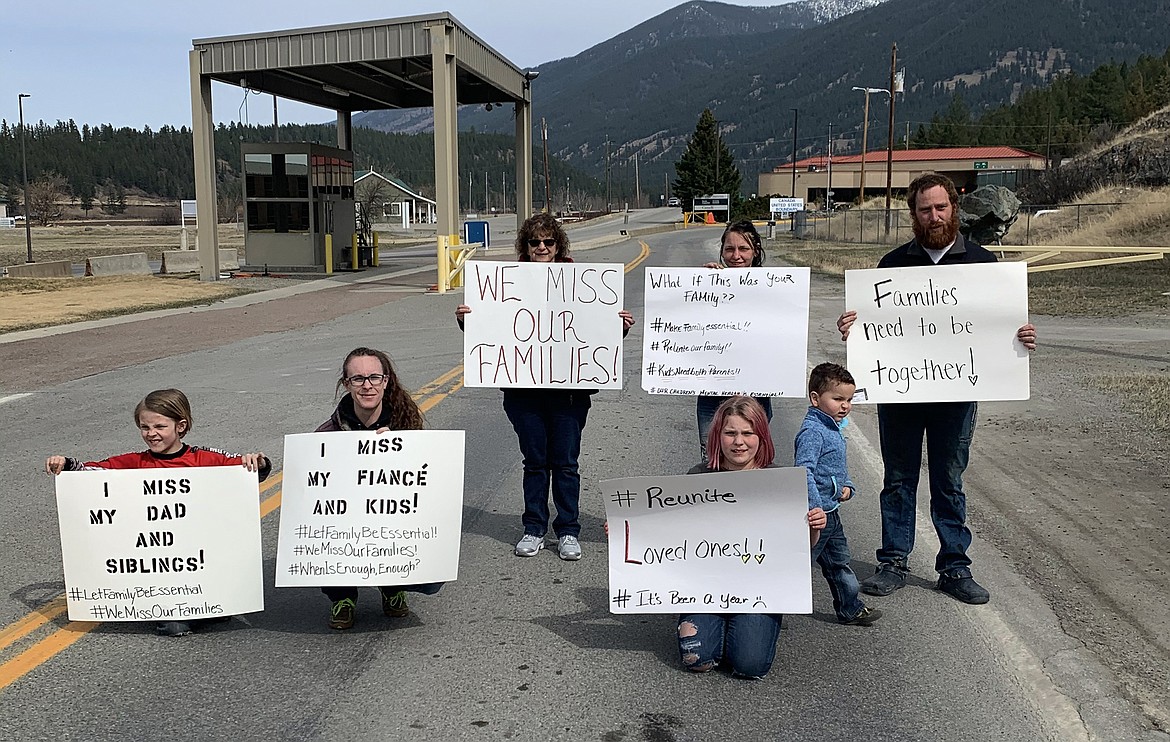Sen. Daines' bill to reopen border fails in Senate
Despite drawing bipartisan support, a Montana-led effort to reopen traffic across the U.S.-Canada border fell short in Congress last week.
U.S. Sen. Steve Daines, R-Mont., took to the Senate floor on Oct. 7, asking his colleagues to bring a border-reopening bill he co-sponsored out of committee. The legislation would broaden the list of essential travel reasons allowing Canadians to cross the border. The action, which required unanimous approval from the Senate, stumbled due to an objection.
While Democrats, including Montana’s U.S. Sen. Jon Tester, have voiced support for reopening the border, Rachel Dumke, deputy press secretary for Daines, said none have signed onto the bill. By objecting to the legislation on behalf of Democrats, Sen. Tom Carper (D-Del.) blocked the bill from advancing to the House, according to Dumke.
Along with Tester and Daines, U.S. Rep. Matt Rosendale and Gov. Greg Gainforte, both Republicans, have urged President Joe Biden to allow more Canadians across the border. Senate Majority Leader Charles Schumer, a New York Democrat, also has voiced support for reopening the border.
For 19 months, the border closure has divided families and sapped communities that rely on Canadian customers. State Sen. Mike Cuffe, R-Eureka, said he was sorry to see Daines’ bill stumble and pointed to how the long-standing closure has strained north Lincoln County.
“Every morning, there were half-a-dozen Canadians that would walk down to the Last Chance Saloon for coffee,” he said, referencing a favorite Eureka watering hole in an Oct. 8 interview. “They cannot come down to buy groceries. Many come to buy tires and fuel and that’s not considered essential travel.”
The land border closure has also made it difficult for many Canadians to access their homes and family in north Lincoln County, Cuffe said.
Under Daines “Restoring the Northern Border Travel Act,” which he co-sponsored with U.S. Rep Elise Stefanik, a Republican from New York, Canadians would be able to drive across the border to visit family members and property. The bill would also permit Canadians to cross the border to board flights or attend business meetings and site-visits in the U.S.
Daines’ bill has been tied up in the Senate Homeland Security Committee since late June.
In presenting his objection to the legislation, Carper acknowledged the border closure was an important issue for Montana and other northern states. He said he was willing to work with Daines on a path forward. But Carper, who serves as the senior Democrat in the Homeland Security Committee, said his panel needed more time to explore the potential broad effects of the legislation.
“I am concerned … that this legislation as is, is a bit too broad and could have unintended consequences, including making it hard to address future challenges at our borders,” he said.
The congressional push to reopen the border came after the Biden administration extended the closure of the Canadian and Mexican border late last month. Citing concerns over COVID-19, the administration pushed the date back to Oct. 21.
In his effort to push his bill through the Senate, Daines pointed to Canada's vaccination rate, saying at over 80 percent it was one of the highest in the world. Just over 81 percent of Canadians eligible to receive vaccines are fully vaccinated as of Oct. 8, according to Canada’s online COVID-19 vaccine tracker.
“Since the President will not do the right thing, to use some good old fashioned Montana common sense, listen to Montanans and open our northern border, I’ve introduced a bill to do just that,” Daines said on the Senate floor Oct. 7. “By the way, I’ve seen several of my colleagues across the aisle join me in calling on the administration to reopen the northern border.”
Despite extending the deadline on land travel, Biden announced in late September that fully vaccinated foreigners would soon be permitted to fly into the U.S. Tester joined a bipartisan group of five other senators in sending a letter to the director of the Centers for Disease Control and Prevention asking if there was any medical justification for “for continuing to impose more stringent restrictions on Canadians entering the United States via car than on Canadians entering via plane.“
Canadian Prime Minister Justin Trudeau lifted restrictions on non-essential travel into the country for Americans in August.

